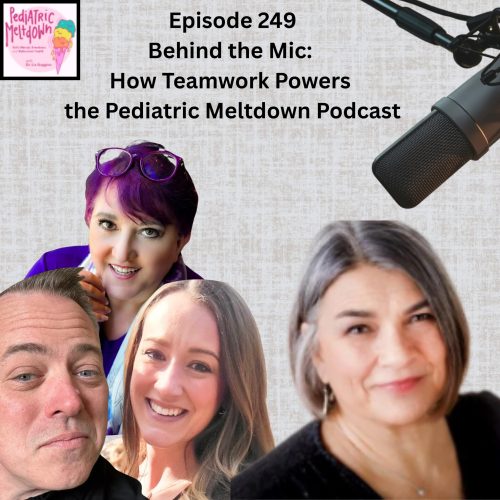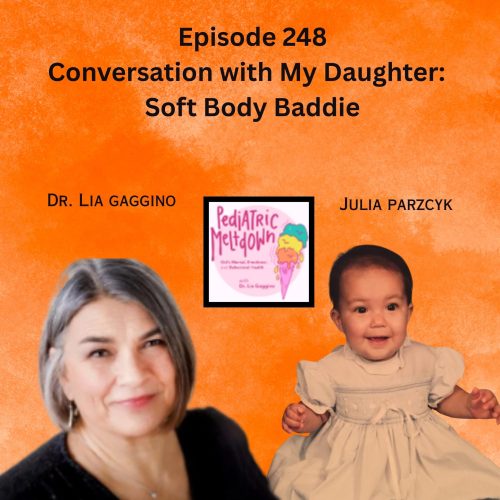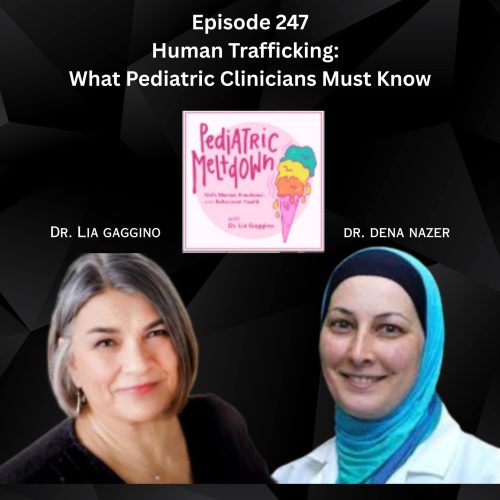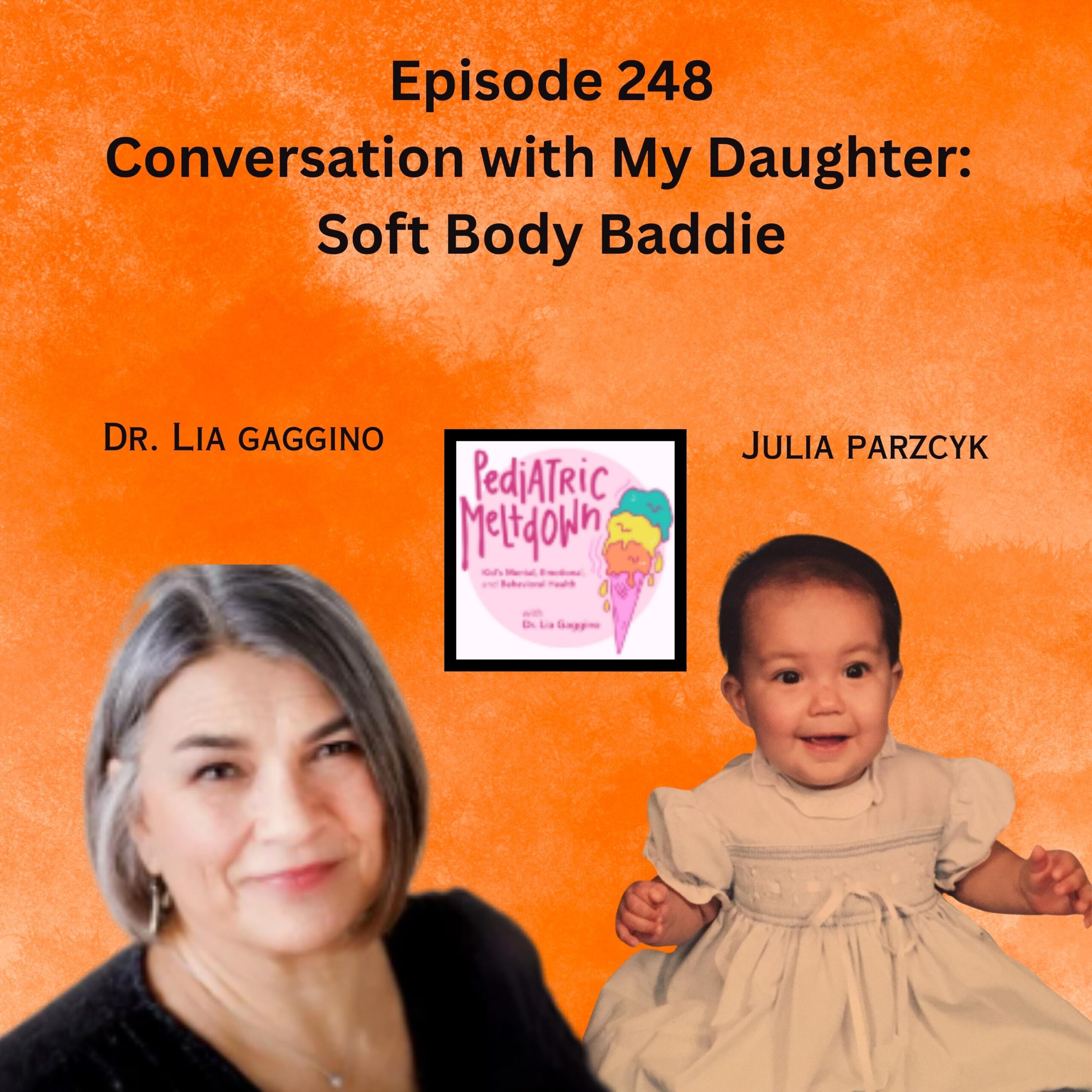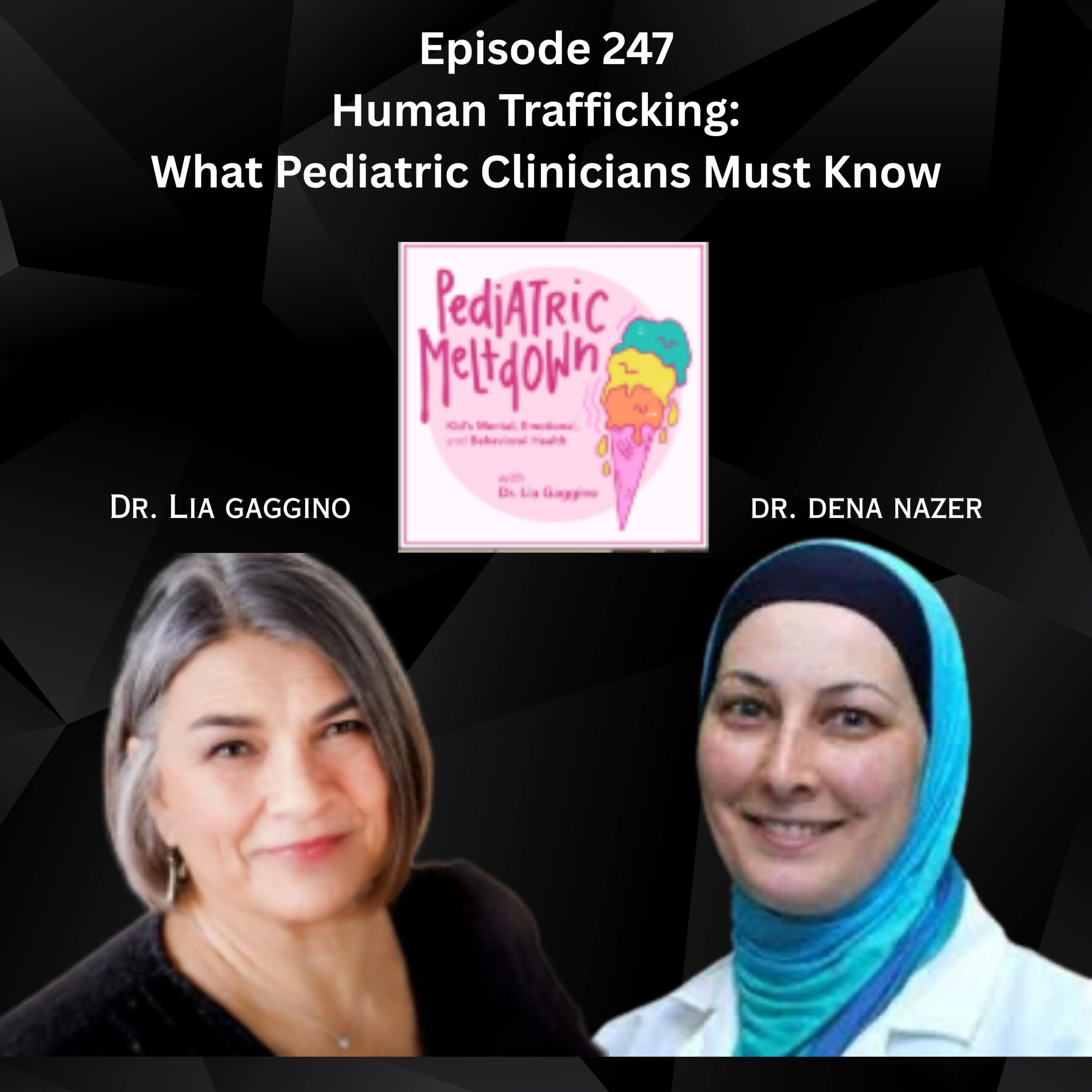No one expected it. How could you? I mean, he was doing so well. Taking the meds, socially engaged. Everything seemed fine….. But one day in February something went wrong. Dr. Colleen Kraft makes a second appearance on the podcast, but this time, she walks us through her very personal journey of how schizophrenia has affected her family as well as her, as a mother. It’s difficult to hear, but it’s something that will stay with you for a very long time. Dr. Elise Falluco, one of the foremost leading pediatric psychiatrists, helps shed light on this mental illness that 24 million people deal with every day. Our host, Dr. Lia Gaggino gets the hard truth to some hard questions. Listen in as 3 of the most accomplished medical professionals in the United States discuss this often-stigmatized mental illness, schizophrenia.
Schizophrenia:
Noun PSYCHIATRY
- a long-term mental disorder of a type involving a breakdown in the relation between thought, emotion, and behavior, leading to faulty perception, inappropriate actions and feelings, withdrawal from reality and personal relationships into fantasy and delusion, and a sense of mental fragmentation.
- (in general use) a mentality or approach characterized by inconsistent or contradictory elements.
- “Gibraltar’s schizophrenia continues to be fed by colonial pride”
[00:30 -15:37] Opening Segment
- The back story on Dr. Falluco and Dr Kraft and what led them to wanting to work with children
- Dr. Falluco talks about (her son), Tim’s schizophrenia diagnosis
- 33% diagnosed schizophrenics are treatment resistant
- If 33% of cancer patients were treatment resistant, we would be demanding new and better treatment
[15:38 – 24:46] What are the early signs to look out for?
- No longer cares about appearance, gets tired, sleep disrupted, apathy, stops bathing, etc.
- Psychosis sometimes masquerades as depression
- The difference between the child who has an “imaginary friend” and a child that is not developmentally typical
- Most common scenario: parents bring their child to the doctor because the child was found talking to themselves.
[24:47 – 34:16] How to Ask the hard questions
- The question that will determine “True Psychosis” vs “Psychotic Like Experiences”
- Why headphones might be a red flag?
- How to get past the stigma
[34:17 – 59:13] What causes Schizophrenia?
- Medications and treatments currently being researched
- How much do genetics factor into diagnosing schizophrenia
- Making the distinction between bipolar and psychosis
- We need to change the language that is associated with schizophrenia (i.e. “Psychotic Killer”, Schizophrenic Criminal”)
[59:14 – 1:08:56] Closing segment Takeaway
You can reach Dr. Colleen Kraft
Instagram: @docmom3460
Linkedin: Colleen Kraft | LinkedIn
You can reach Dr. Elise Falluco
Linkedin: Elise Fallucco | LinkedIn
Resources:
Other episodes you may like:
Episode #13 Psychiatric consultation
Resources Mentioned in the Episode
Song lyrics mentioned by Dr. Kraft
“Song For Sandy” by Alela Diane
Song lyrics mentioned by Dr. Kraft
“Mona Lisas & Mad Hatters” by Elton John
Dr. David Kessler’s website
Podcast: Healing
Tender Hearts Community
Key quotes for Twitter:
“When you’re evaluating a teen with mood changes and low energy, don’t forget to ask about psychosis and ideally, normalize it. Ask about it in a way that doesn’t contribute to more stigma and shame” … Dr. Elise Falluco
“33% of diagnosed schizophrenics are treatment resistant, but if that were 33% of CANCER patients, we would be demanding new and better treatment… Dr. Colleen Kraft
THANK YOU FOR YOUR SUPPORT!
Pediatric Meltdown was listed as a Top 20 Pediatric Podcast on FeedSpot.
If you’d like to connect with me, you can find me on LinkedIn, Facebook, Instagram, and Twitter, or email me at gagginol@medicalbhs.com or gagginol@yahoo.com. To learn more about me visit https://www.medicalbhs.com/
LOVE WHAT YOU HEARD? Leave us a 5-star review so we can continue to provide you with great content. Share this episode and help people know more about children’s health and well-being.



